Ours is a holistic approach that does not hinder the physiological processes of the body. It's an approach that encourages the restoration of balance, by combatting the causes of symptoms as efficiently as possible and ensuring fast relief.
Symptoms and relief
SELECT YOUR NEED

Immune defenses
What is antibiotic resistance?
According to the World Health Organization (WHO), the phenomenon of antibiotic resistance represents a serious global threat. It is caused by the excessive and inappropriate use of antibiotics, which has resulted in the development of numerous antibiotic-resistant bacterial strains in recent years.
- Improper use: antibiotics are often administered in cases of respiratory tract infections, which most often are of viral origin.
- Dosage: antibiotics are most often administered as broad-spectrum agents even when the responsible bacterium has not been identified, in excessive doses and for an improper duration.
- Self-medication: more and more people are resorting to using the antibiotics left over in the medicine cabinet for self-medication, without a doctor's prescription.

WHAT ARE THE CONSEQUENCES OF ANTIBIOTIC RESISTANCE?
It is estimated that by 2050, at least 10 million people will die from infections that cannot be fought due to antibiotic resistance.
It is thus essential to quickly stop this phenomenon, which has become almost uncontrollable, in order to prevent it from seriously harming our health and that of future generations.
THE ABUSE AND INAPPROPRIATE USE OF ANTIBIOTICS HAVE SEVERAL SIDE EFFECTS
They compromise the balance of the gut microbiota, a vital element responsible for a number of functions that are particularly necessary for the balance of the immune system and the well-being of the body, causing a state of gut dysbiosis that can lead to:
- weakening of immune defenses
- increased likelihood of contracting infections
- increased risk of recurrence
- development of food intolerances and/or allergies
HOW CAN WE COMBAT THIS GLOBAL DANGER?
By making a responsible choice: preferring natural solutions with equally effective antimicrobial properties, in cases where antibiotics are not strictly necessary.

Make a responsible choice: the flu is viral, antibiotics do not work against viruses!
It can present abruptly with various signs and symptoms:
- Fever (often high for 3-4 days) Headache
- Muscle and joint pain Coughing (which can become severe) Chills
- Fatigue
- Nasal congestion
In any case, flu infections can have a wide spectrum of clinical manifestations, ranging from cases with no fever to others with systemic symptoms and effects on the intestinal balance (e.g., vomiting and diarrhea). When the flu involves the respiratory tract, bronchitis and pneumonia resulting from bacterial overinfection are the most serious complications.
In addition, it is a disease typical of the winter months, and comes with a high level of contagiousness, coupled with the virus' ability to mutate from one season to the next.
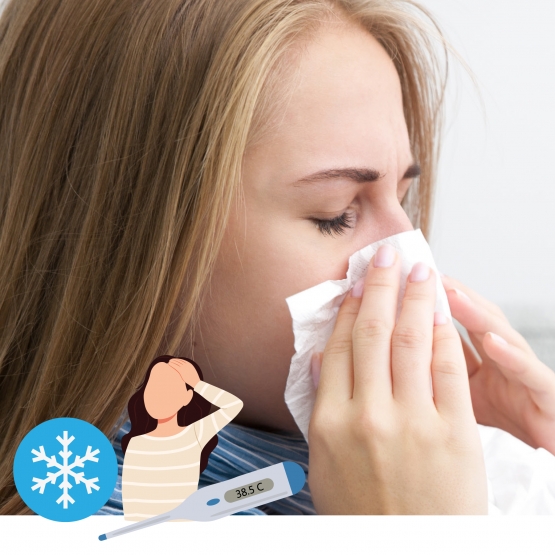
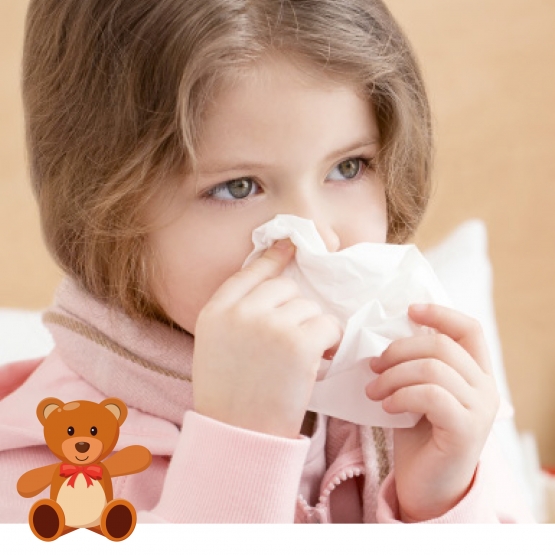
The risk is highest in children!
Due to their relative lack of immunity, close proximity in school environments and contact with contaminated surfaces, the level of contagion in children is extremely high.
It is very common to confuse viral flu with a bacterial infection, which often leads to improperly using antibiotics and other types of medications to treat the symptomatic manifestations, which have numerous side effects and suppress our body's physiological defense mechanisms, slowing the healing process.
Tackling Drug-Resistant Infections Globally: final report and recommendations. The Review on Antimicrobial Resistance (AMR). Chaired by Jim O’Neill; 2016 May.
GSEVO®
Grapefruit Seed Extract, enhanced for systemic use thanks to the patented Molecular Bioliquefaction® process, has a potent broad-spectrum antimicrobial action, effective not only against more than 800 bacterial strains, both Gram+ and Gram-, but also against mycetes, viruses and parasites. Recent studies have also highlighted the use of Grapefruit Seed Extract for respiratory problems of viral origin, which are often responsible for seasonal ailments. In addition, its characteristic selectivity makes it unique compared to conventional antibiotic solutions, which weaken the body because they also act against the physiological bacterial flora.
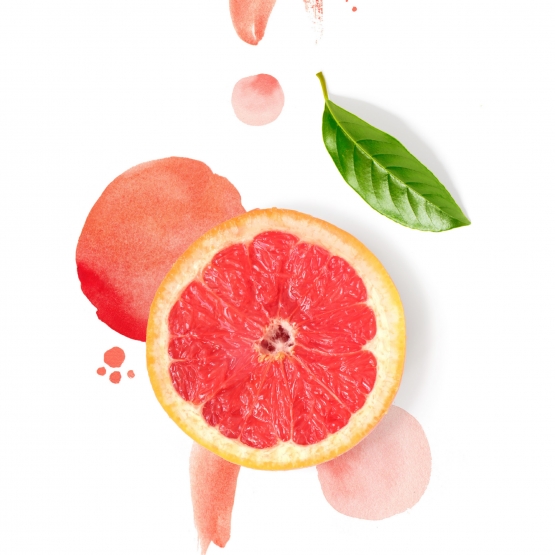
PURPLE CONEFLOWER
Purple Coneflower has an important immunomodulatory action that supports the normal function of the immune system, which is essential for resolving seasonal cold-related illnesses, thanks to the presence of arabinogalactan and alkylamides, which can promote phagocytosis and the production and activity of lymphocytes. It has also been shown to have marked antiviral activity against influenza viruses, inhibiting the binding between viruses and cell receptors and thus preventing viruses from entering the interior of cells and infecting them.
NARROW-LEAVED CONEFLOWER
The extract obtained from the root of Narrow-leaved Coneflower is able to slow the spread of pathogenic germs by triggering a defense mechanism and simultaneously activating the regenerative activity of injured and irritated tissues, creating a protective film and reducing the inflammatory process responsible for symptomatic manifestations. The main active functional ingredients are alkylamides, caffeic acid esters, cynarin and a number of polysaccharides. Furthermore, in synergy with Purple Coneflower it has an immunomodulatory and antioxidant action useful in the treatment of cold-related illnesses and microbial infections of various origins and nature, preventing overinfection and relapse.

MELALEUCA ALTERNIFOLIA
Melaleuca essential oil (Tea Tree Oil) has extraordinary broad-spectrum antimicrobial and antifungal properties that make it an ideal remedy for dealing with a variety of microbial infections, both bacterial and viral, such as those that cause the main seasonal and cold-related ailments. In addition, it possesses a marked anti-inflammatory and antioxidant action, which is the most useful in an approach aimed at resolving the ongoing infection and helping the affected mucous membranes regain their physiological balance as quickly as possible.
ZINC PIDOLATE
Zinc is a mineral found in the body that is critical for many functions of the immune system. A number of clinical studies have shown that its supplementation can reduce the incidence of infections in the body as a result of microbial aggression. It has been shown to have an immunomodulatory and antioxidant action, promoting the maintenance of the integrity of cell membranes, decreasing the gene expression of a number of proinflammatory cytokines and protecting the respiratory epithelium from oxidative stress by improving mucociliary clearance.
MORINDA CITRIFOLIA (NONI)
Noni juice is rich in different kinds of polyphenols, including flavonoids, phenolic acids and iridoids that have strong antioxidant action. It also has prebiotic properties useful for the balance of the intestinal microbiota, which strengthen immune defenses, in synergy with its immunomodulatory, protective and stimulating effect on metabolism and cellular structures (DNA), including at the lymphocyte level. Finally, its analgesic properties help for pain tolerance, relieving symptoms during the acute phase of infection.
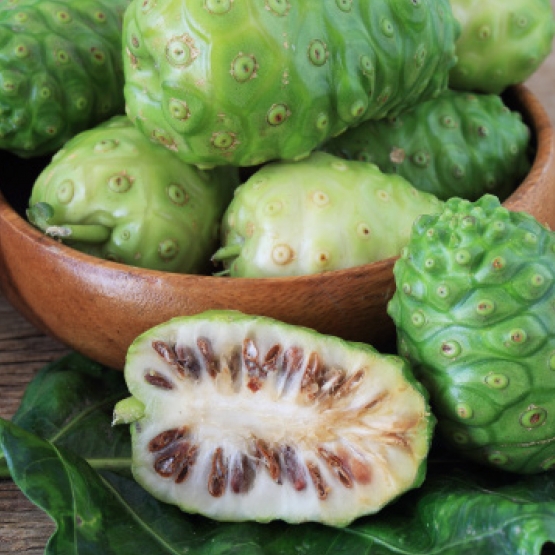
RODIOLA ROSEA
Rhodiola is a plant that acts as a tonic adaptogen. It can increase the body's resistance to toxins and promote the synthesis of substances cells use for energy production, improving overall metabolic activities. Thus, Rhodiola helps support the body during illness and reduces recovery time in conditions of fatigue and/or prolonged infections, as well as during the convalescence period.
CAT'S CLAW
Cat's Claw extract, derived from the bark and root, contains various alkaloids, polyphenols, flavonoids, quercetin, catechins, tannins, sterols and mucilages that underlie its potent efficacy in regulating the immune system as an immunomodulatory agent. It also has antiviral, anti-inflammatory and antioxidant properties, thanks to the quinovic acid glycosides contained in its phytocomplex, which further enhance its activity on the immune system, making it particularly suitable for the prevention of viral ailments.

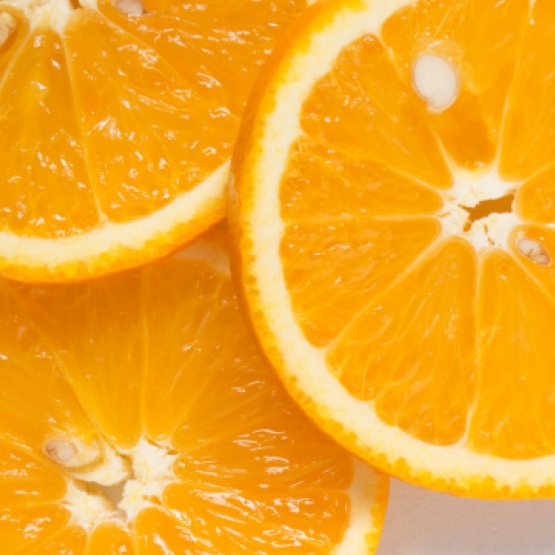
VITAMIN C
Countless studies have proven vitamin C's important immunomodulatory and antioxidant activity: it contributes to immune defense by supporting various cellular functions of innate and adaptive immune systems. In particular, several clinical studies have shown that vitamin C can decrease the common cold incidence and the duration of respiratory symptoms, including in children. Finally, it reduces fatigue and tiredness by promoting the body's rapid response to the first symptoms.
Biosterine®
Our Biosterine® phytocomplex, obtained through a patented extraction process, consists of Holy Basil and Sage and is titrated to 40% rosmarinic acid. It has immunomodulatory properties (particularly attributed to Holy Basil) and a marked anti-inflammatory action arising from its high titration in rosmarinic acid.
FRANKINCENSE
This is a traditional Ayurvedic remedy with marked anti-inflammatory properties resulting from its active ingredients, boswellic acids. In addition, Boswellia serrata extract and boswellic acids can also act on the immune system's regulation function, stimulating the production of antibodies and lymphocytes.
Biosterine Junior®
Our Biosterine Junior® phytocomplex, obtained by a patented extraction process, consists of Spearmint and Lemon Balm and is titrated to 40% rosmarinic acid. It has immunoasmodulatory, antimicrobial and antioxidant properties (attributed particularly to Spearmint) and a marked anti-inflammatory effect from its high titration in rosmarinic acid.
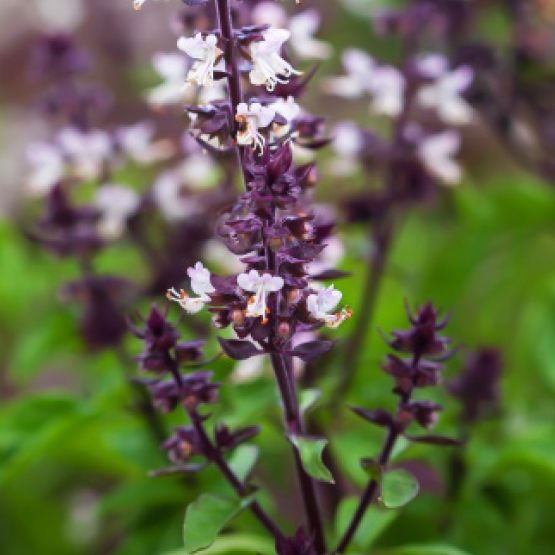
PINEAPPLE
Pineapple stem has marked anti-inflammatory and anti-swelling activity on the mucous membranes, thanks to its high bromelain content. Bromelain is also useful as a mucolytic in the treatment of bronchitis and respiratory conditions. In particular, a clinical study has investigated the effect of bromelain on the inflamed mucous membranes of children with sinusitis, demonstrating that Pineapple extract could reduce the inflammation of the mucous membranes and significantly reduce symptoms.